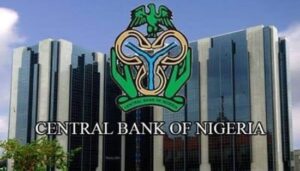
The banking industry lost N1.1 trillion in total assets as a result of compliance with the requirements of the International Financial Reporting Standard (IFRS) 9 on recognition of bad loans.
The above requirement, according to Agusto & Co, Nigeria’s leading bank rating firm, led to the loss of N1.1 trillion in total assets by the Nigeria banking industry in 2018.
Ada Ufomadu, Agusto & Co analyst, disclosed this while presenting the company’s report on the Nigeria Banking Industry.
She said: “In 2018 the assets of the banking industry were about N33.3 trillion and we think in 2019 growth will be driven largely by the fact a lot of banks are raising capital.
In 2018 there was the IFRS 9 accounting principle that was introduced to the banking industry and it had a significant impact on capital. The industry lost about N1.1 trillion from banks’ capital. So what we are seeing now is that banks are trying to recoup these losses, banks are raising Tier 2 capital. Some banks have come to the market to raise capital in the form of Tier 2 bonds. So we think that will be a major driver of assets in 2019.”
Speaking on the company’s outlook for loan growth in 2019 against the backdrop of the minimum Loan to Deposit Ratio (LDR) of 60 percent recently ordered by the Central Bank of Nigeria (CBN), Ufomadu said, “We don’t think that banks will lend more to meet the 60 percent LDR because of the credit risk involved. As a bank, I don’t think they will just start giving out loans because they are trying to meet with a regulatory requirement.
“At Agusto & Co, we believe that there might likely be an extension of the deadline for meeting the LDR. We see banks responding by reducing their deposit base because that is an easy way to meet up with the LDR, and what this means is that since it is likely that banks will be rejecting some deposits, the interest rate on deposit will likely reduce, so interest expense for banks may reduce
“Some people also believe that this might lead to a pricing war, with competition for premium borrowers. That is according to a school of thought, but generally, we don’t believe there will be a significant increase in the loan book of the banking industry.”
On the company’s outlook for the exchange rate and government borrowing activities and its impact on the interest rate, she said: “We don’t think there will be naira devaluation because the crude oil price is still relatively high and the CBN is well equipped to defend the naira.
“We see an increase in government borrowing. We still believe that the crowding-out effect which the CBN is trying to avoid will occur. We believe that the private sector will be crowded out because the government will still need to borrow and that will have an impact on the interest rate. So we think interest rate will remain high.”
You may be interested

‘I’m Incredibly Proud’– Arokodare Talks Up Genk’s Unbeaten Home Streak
Webby - December 23, 2024Tolu Arokodare is full of excitement followingGenk’s historic victory over Anderlecht, reports Completesports.com.Sunday’s win at the Cegeka Arena was the…

WAFU B U-17 Girls Cup: Ghana Edge Gallant Flamingos On Penalties In Final
Webby - December 22, 2024Despite a spirited performance Nigeria’s Flamingos lost on penalties to hosts Ghana on penalty shootout in the final of the…

Bournemouth Equal Burnley’s Old Trafford Feat After 3-0 Win Vs United
Webby - December 22, 2024Bournemouth’s 3-0 win against Manchester United on Sunday meant the Cherries equaled Burnley’s feat at Old Trafford.United went into the…






















![American Pastor, David Wilson Seen Eating The Box Of Woman Who Isn’t His Wife [Video]](https://onlinenigeria.com/wp-content/uploads/2019/10/american-pastor-david-wilson-seen-eating-the-box-of-woman-who-isnt-his-wife-video-150x150.jpg)







